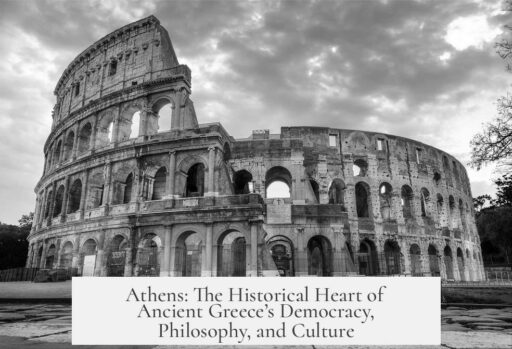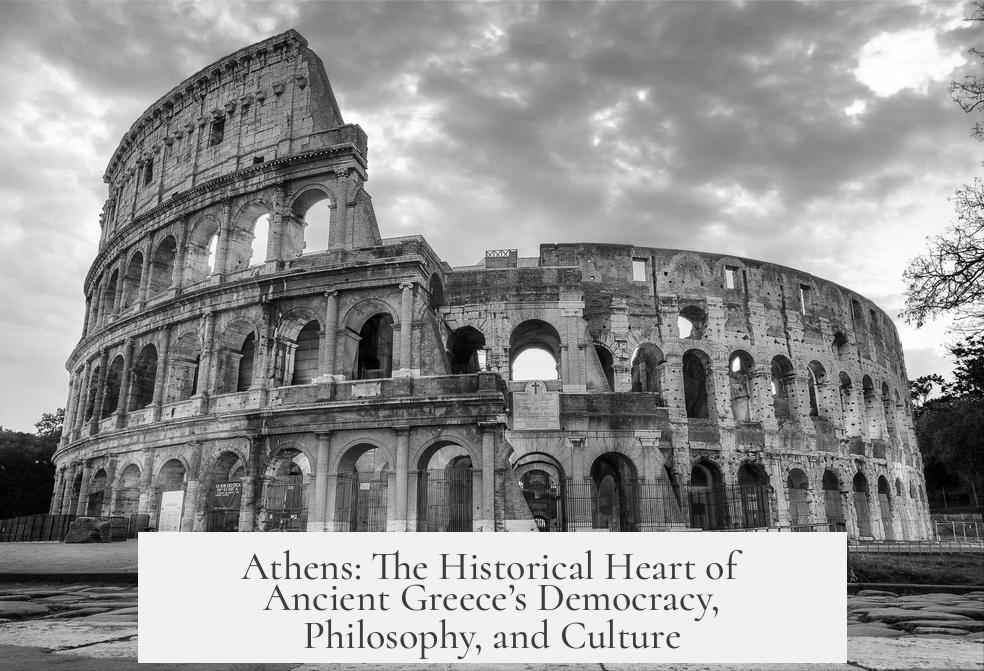Athens is the most well-known place in Ancient Greece due to its pivotal role in politics, culture, and philosophy, which shaped Western civilization’s foundation. It served as the center of democracy, arts, and education during its classical period. The city’s historical impact remains significant to this day.
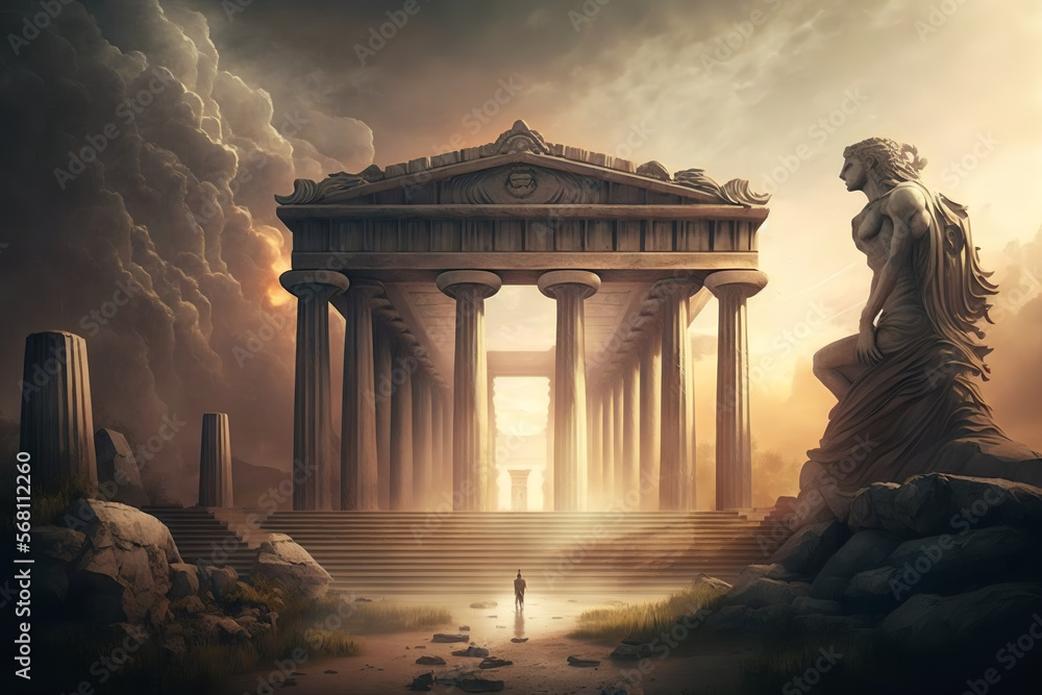
Athens stands out for pioneering democratic governance around the 5th century BCE. Citizens actively participated in decision-making, a novel system contrasting with monarchies and oligarchies prevalent elsewhere. This model influenced future political systems worldwide.
The city fostered remarkable achievements in arts and architecture. Its iconic landmarks, like the Parthenon, symbolize classical Greek aesthetics and religious devotion. These structures employ advanced techniques that mark a high point in ancient architecture.
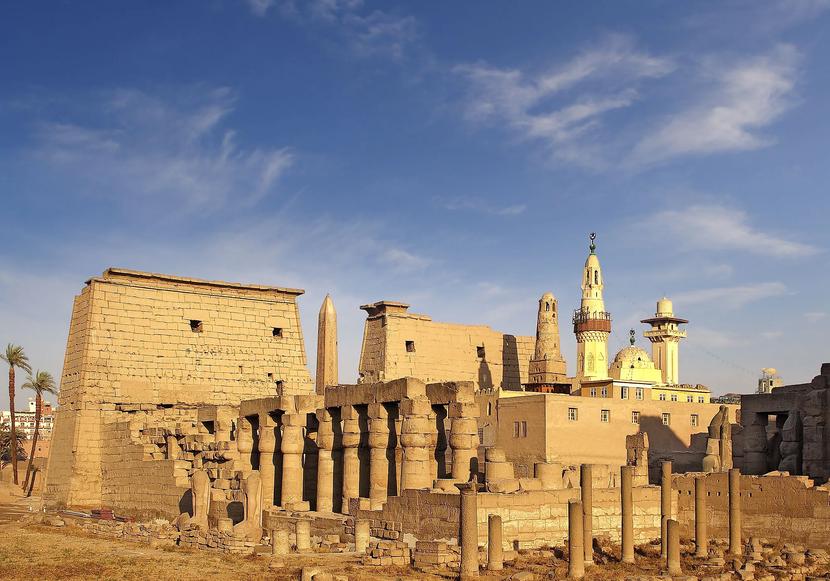
Philosophy flourished in Athens, attracting figures such as Socrates, Plato, and Aristotle. Their ideas on ethics, metaphysics, and politics remain foundational in Western thought. The city acted as a hub where philosophical discussions shaped intellectual history.
- Political prominence: Birthplace of democracy.
- Cultural achievements: Masterpieces in art and architecture.
- Philosophical heritage: Home to key philosophers.
- Military and naval power: Athens led the Delian League, influencing regional stability.
In addition to culture and politics, Athens demonstrated military strength during the Persian Wars. The victory at Marathon and naval dominance at Salamis reinforced its influence among Greek city-states.
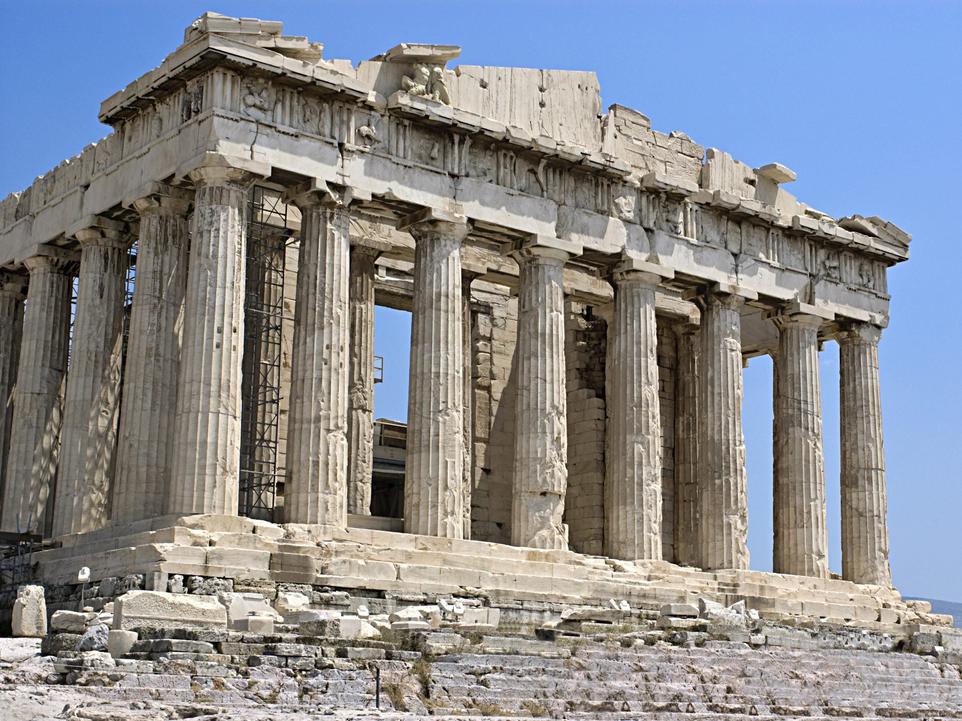
Athens’ educational institutions attracted students from across the Mediterranean. The Lyceum and Academy offered comprehensive learning environments, promoting critical thinking and inquiry.
These factors combined to establish Athens as a cultural and intellectual capital of Ancient Greece. Its contributions to governance, art, philosophy, and military affairs distinguish it historically.
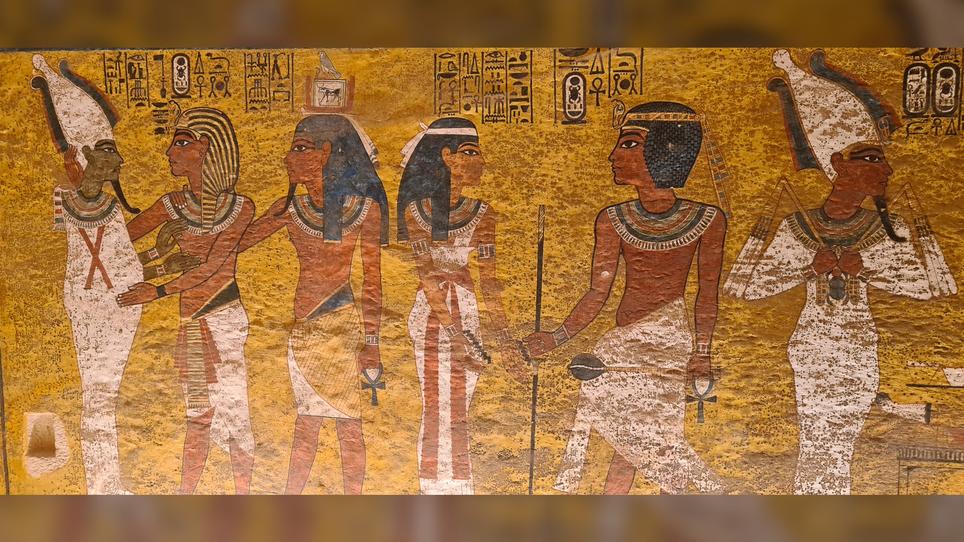
| Aspect | Significance |
|---|---|
| Democracy | Introduced citizen-based governance |
| Architecture | Created enduring monuments like the Parthenon |
| Philosophy | Produced thinkers shaping Western ideas |
| Military | Led successful wars enhancing Greek unity |
- Athens pioneered democracy connecting citizens directly to governance.
- Its cultural monuments remain symbols of classical antiquity.
- Philosophers from Athens affected global intellectual traditions.
- The city’s military leadership contributed to Greek regional power.
Why is Athens the Most Well-Known Place in Ancient Greece? A Deep Dive into History’s Favorite City
Simply put, Athens is the most historically renowned city in Ancient Greece because it was the epicenter of democracy, philosophy, art, and military power, shaping Western civilization like few others. But hold onto your laurel wreaths—we’re not just ticking off famous buzzwords. There’s an outstanding story behind Athens’ global fame.

Let’s embark on a journey through time to understand why Athens claims the throne of Old Greece’s historical limelight and why it remains a subject of fascination for historians, students, and curious minds alike.
The Birthplace of Democracy: Politics Like No Other
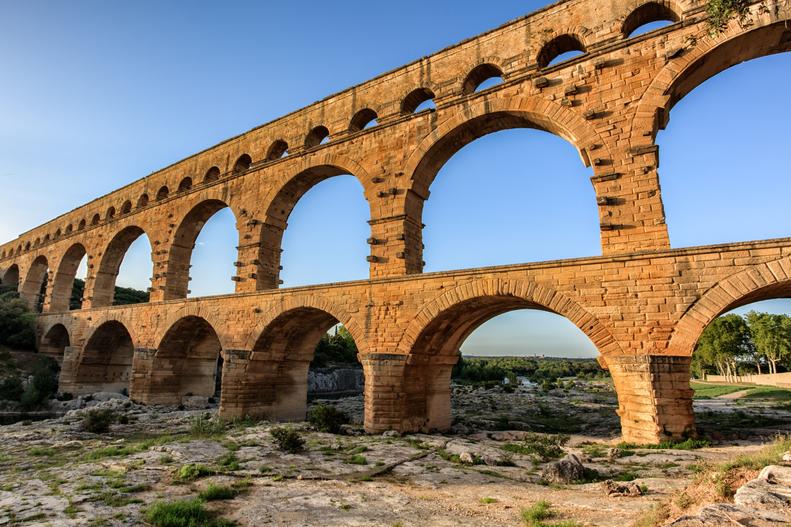
Imagine a city buzzing with debates where everyday citizens had a say in government decisions. That was Athens—pioneering demokratia (rule by the people) around the 5th century BCE. Unlike many ancient city-states dominated by kings or tyrants, Athens introduced a political system that put power into the hands of its male citizens.
This revolutionary system left a mark so deep that modern democracies trace their roots back to it. Where else can you find direct assembly meetings with speeches, votes, and legislation conducted out loud in public squares? Athens didn’t just theorize democracy; they lived it.
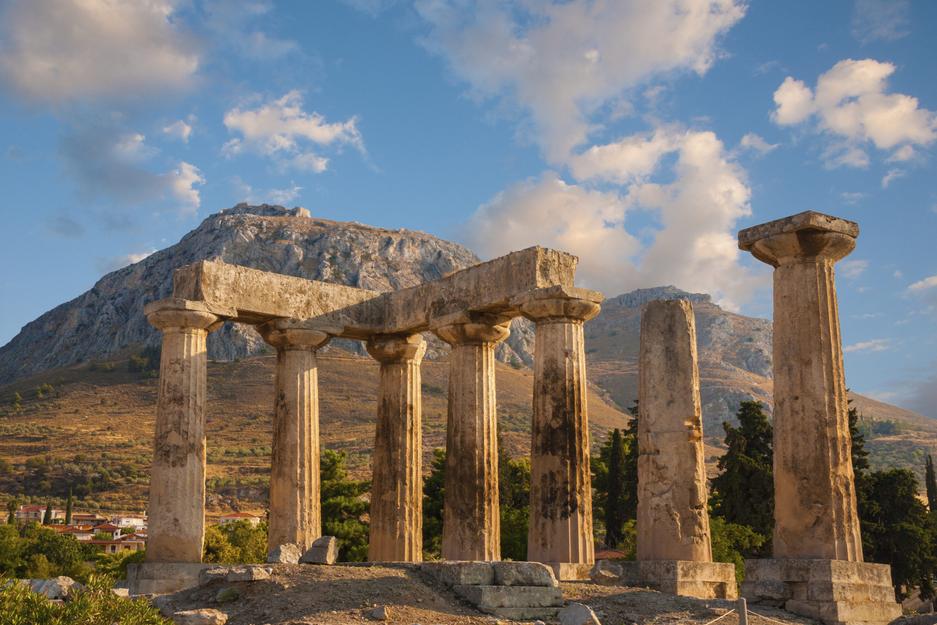
Philosophy’s Greatest Minds Called Athens Home
Why learn about philosophy in a dusty textbook when you can picture Socrates strolling the Agora, questioning and shaking the minds of his contemporaries? Plato and Aristotle—the two giants whose ideas still influence ethics, politics, and science—both taught in Athens.
The city’s intellectual atmosphere fostered critical thinking. Philosophers weren’t just abstract thinkers; they were public figures actively engaging with citizens. This vibrant culture of inquiry propelled Athens to intellectual heights unmatched by other city-states.
Architectural Marvels and Artistic Excellence
Walk into Athens, and you see more than just ruins. The Parthenon, perched atop the Acropolis, is an enduring symbol of artistic brilliance. This temple dedicated to Athena—the city’s patron goddess—is a marvel of architecture and symbolizes Athenian pride.
Athens’ dedication to beauty and art shines through its statues, pottery, and drama. This city staged the very first plays by playwrights like Sophocles and Euripides, giving birth to Western theater. The legacy of drama, sculpture, and architecture is a time capsule of Athens’ sophisticated culture.
Military Prowess and Political Leadership in Greece
Of course, Athens wasn’t just about thinking and debating. It wielded powerful navy forces that led Greek coalitions against formidable enemies. The victory in the Persian Wars, especially the Battle of Salamis, showcased Athens’ strategic genius and naval supremacy.
This military and political strength positioned Athens as a leader among Greek city-states during the classical period. Its rivalry with Sparta might have been fierce, but Athens’ creative and military vigor made it stand out historically.
Why Not Other City-States?
You might wonder, “Why not Sparta or Corinth?” Sparta was fearsome but secretive and militaristic. Its social system discouraged innovation outside war. Corinth was rich and powerful but didn’t match Athens in cultural impact. Athens combined political innovation, intellectual development, and military success—offering a well-rounded legacy.
Modern historians and educators frequently choose Athens to represent Ancient Greece for one simple reason: it embodies diverse facets—political, cultural, philosophical—that shaped the Western world.
Digging Deeper: Stories and Discoveries That Keep Athens Famous
| Aspect | Impact | Example |
|---|---|---|
| Democracy | Model for modern governments | Assembly of citizens voting on laws |
| Philosophy | Foundation of Western thought | Socrates’ Socratic method |
| Art & Architecture | Inspired countless artists | Parthenon’s Doric columns |
| Military | Protected Greek independence | Naval victory at Salamis (480 BCE) |
Fun Fact: Athens Was Home to More Than Just Philosophers and Politicians
The city was also buzzing with athletes competing in the first Olympic-style games, skilled sailors navigating the Aegean Sea, and poets immortalizing myths and heroes. It was a kaleidoscope of human achievement.
So, What Can We Learn From Athens Today?
Exploring Athens’ legacy is more than a history lesson; it’s a guidebook on civic engagement and cultural richness. Whenever cities worldwide celebrate democracy or art, they hold a mirror to Athens’ pioneering spirit.
Want a practical takeaway? Next time you watch a debate, visit a museum, or vote, remember Athens. The city’s blend of political experimentation, cultural innovation, and intellectual daring still echoes through our lives.
In Conclusion
Though the original question might have lacked detailed passages, diving into Athens’ story reveals why it dominates Ancient Greek history lessons. Democracy, philosophy, art, and military strength converge in one city. This unique combination immortalizes Athens.
Rather than waiting for dry historical facts to appear, we’ve pieced a vivid portrait of why Athens remains the most well-known ancient city: it wasn’t just any city—it was the city that shaped the foundations of Western civilization.
Ready to explore Athens yourself? Take a virtual tour or read the original works of Plato and Aristotle. Experience how this ancient city continues to inspire curiosity and admiration millennia later.
And remember, history isn’t just about the past; it’s an ongoing conversation. Athens starts that dialogue.
Why is Athens often considered the most well-known city in Ancient Greece?
Athens is known for its role in the development of democracy. It became a cultural and political center. Many important philosophies and arts flourished there.
What made Athens influential in politics during Ancient Greece?
Athens introduced a system where citizens voted on decisions. This early form of democracy shaped political ideas worldwide. It set Athens apart from other city-states.
How did Athens contribute to philosophy and arts?
Famous philosophers like Socrates, Plato, and Aristotle lived in Athens. The city also built iconic architecture like the Parthenon. These left lasting impacts on Western culture.
Why is Athens known for its historical legacy compared to Sparta or other city-states?
Unlike Sparta’s military focus, Athens prioritized education, arts, and civic participation. Its cultural achievements had broader influence, making its history more documented and studied.
Did Athens’ role in wars add to its historical fame?
Yes. Athens led during the Persian Wars and fought in the Peloponnesian War. These conflicts shaped Greek history and highlighted Athens’ power and resilience.
